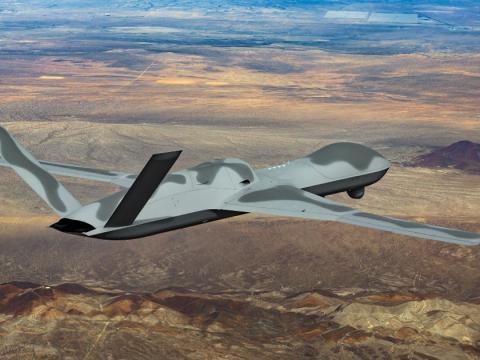Washington Insider Shares Views on Obama, Gates, Acquisition and Afghanistan
MILCOM 2009 opened today with a speech by David Gergen, CNN commentator and editor at-large for US News and World Report.
BOSTON - October 19, 2009 - MILCOM 2009 opened today with a speech by David Gergen, CNN commentator and editor at-large for US. News and World Report. Gergen, who has worked for four U.S. presidents, pointed out that the relationship between president and military has changed over the past two decades. The differences have evolved as the men who occupied the Oval Office and held the position of commander-in-chief of the military themselves did not have first-hand military experience. President Barack Obama appears to be at least stemming the tide of this change by putting more four-stars in places of power than any president before him, Gergen pointed out. These include Gen. Eric K. Shinseki, USA (Ret.) as leader of the Department of Veterans Affairs and Adm. Dennis Blair, USN (Ret.) as the Director of National Intelligence. However, one of the best decisions Obama made after taking office was to ask Robert M. Gates to stay on as secretary of the U.S. Defense Department into the new administration. "Obama looks to him with an honest respect and has given him more and more latitude. I would say that Bob Gates right now is probably the most powerful Secretary of Defense that I can remember," Gergen said. The president supports Gates' efforts to do what he needs to do to get things done, and that applies to the weapons systems and will apply to the Quadrennial Defense Review as well, he added. Gates has taken a strong view on a number of activities since he began working under President Obama, including strategy, Gergen went on. For example, the SECDEF has been focused on the idea that the Defense Department concentrate on waging the current war, not planning for the next one. Evidence of this is the cancellation of the T-SAT program and Gates' promise to overhaul the military acquisition process, as evidenced by the decision to hold off on the number of F-22s the department will purchase and changes in the Future Combat Systems program. These types of decisions are likely to continue as the Defense Department feels more of the budget crunch. While concern about the Chinese military is important, a growing concern is whether the Chinese will continue to invest in the United States, Gergen shared. The balance the administration is trying to reach is between how much spending must continue to keep the military strong and how much deficit the nation should continue to take on. "Previous administrations sort of built a wall around the Pentagon and said, 'Don't touch these things.' That is no longer the case," he added. Although Gates is being given a lot of leeway on many issues, one issue that the White House will weigh in strongly on will be future operations in Afghanistan. Although the SECDEF will likely have a lot of say in what will occur there, it is Obama who is in the spotlight when it comes to future activity in Afghanistan. The president has demonstrated that he can be tough on many issues; however, the question still remains about how tough he is willing to be in that country. He must begin to move in one direction soon, however, because not to take a stand appears to others-including U.S. allies and the Taliban-that the U.S. is wavering. "To decide not to decide is to invite defeat, in my judgment," Gergen stated. This is an era in which the U.S. is being challenged, Gergen concluded. Looking 20 to 30 years in the future, the question is not whether China or India will be "at the table" but rather whether the United States will still be there. "We're not going to spend our way to being a great power, and we're certainly not going to borrow our way into being a great power; we're going to innovate our way there. And innovation remains the greatest single hope for this country in the long term," he said.



Comments